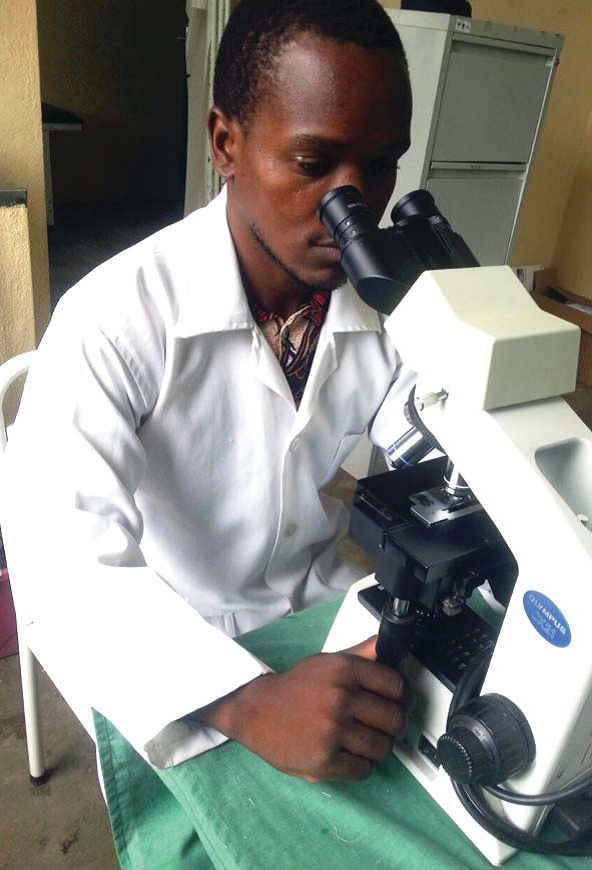According to data from the 2015 National Health Information System, malaria was responsible for 45 percent of admissions and 28 percent of deaths at health centers in Zambézia. Mozambique’s malaria treatment guidelines require all suspected cases of malaria be tested using an RDT or microscopy prior to treatment. Improving the quality of malaria treatment in health facilities depends to a large extent on the skill level of laboratory technicians.
PMI is, therefore, supporting activities with the Zambézia Provincial Health Directorate to improve the ability of laboratory technicians to properly identify and diagnose malaria. In September 2016, PMI supported training for laboratory technicians from 10 districts in Zambézia.
Pre- and post-tests showed that basic knowledge of malaria procedures and diagnostic testing more than doubled as a result of the training. For example, the proportion of participants who correctly identified malaria parasites on a blood test slide rose from 24 percent before the training to 53 percent after the training. Participants also achieved a 25 percent increase in their ability to identify and classify different malaria parasite species. Although technicians’ skills have improved, significant gaps in staff knowledge and performance remain. PMI remains committed to continuously strengthening the capacity of laboratory professionals via mentoring and regular supervision visits alongside provincial and district supervisors.
Alberto Luís Paposseco, one of the participants in the training, stated, “[Before the training,] I did not know how to count the parasites in the blood and was not able to identify different stages of the parasite in the blood, which contributed to the poor diagnosis of malaria in the patient. I am very satisfied with what I learned in this training, [and] it will be advantageous for my work. Knowing that malaria kills many people, I feel that I can help save lives by being able to give the correct diagnosis to the patient, so the clinic can prescribe efficient medication, and the patient can start the treatment and be saved.”

